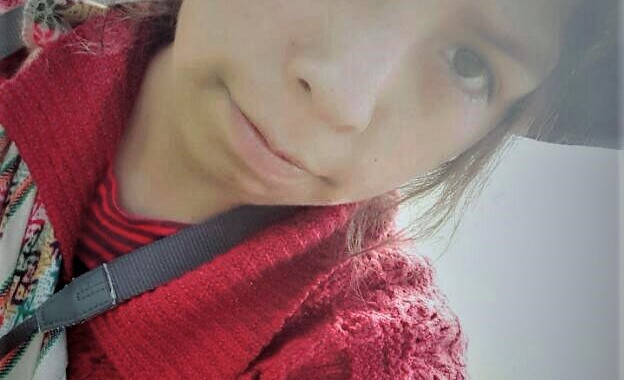Chronicles of the young people of Ccorca in times of COVID-19
- Francesca Servalli
- Aug 18, 2020
- 6 min read
On March 16th 2020, Peru’s President, Martin Vizcarra, imposed a national quarantine for 15 days to prevent the spread of COVID-19. Alongside our team, and listening to our young people, we coordinated so that 70% of them could return to their communities and quarantine with their families. At the moment, these young people are participating in agricultural activities and helping their families continue the production of a wide range of staple foods necessary for Peru’s population. We contacted some of them to learn more about their experience, and this is what they shared with us.
---------------------------------------------------------------------------------------------------------------------------
Name: Hector Raul Community: Cusibamba Studies: Environmental Engineering and Natural Resources
Hector’s family normally cultivates potatoes and raises guinea pigs and cows, all for commercial purposes. Sheep and green vegetables are only produced for the family’s consumption. At the moment, Hector is participating in different activities in the community. One of them is Yapuy, which consists of increasing the amount of soil that covers the potato plants and corn plants. This is done by using a shovel. Then, there’s the Muyuy, in which they leave the land to rest during 3 to 4 years so that it can produce new crops later on. During the Muyuy, the soil is prepared by doing the Allapa, which is the action of moving the soil. This is done with a tool called chakitaqlla.
Not long ago, Hector had the opportunity of being a Collana (a leader in agricultural work) in his uncle’s field. His dad helped him by telling him what his duties were. He had to control and balance the periods of work and rest, supervise the division of food (eg. coca and chicha) in equal portions for all workers, and announce how much work had to be done that day. He told us he felt very comfortable with that position and truly enjoyed the chance of further developing his leadership skills.
When the quarantine was imposed, Hector was working at the Community Center of Ccorca, in one of the projects of the community of Ccorca Ayllu. Now that he can’t work on that any longer, he feels sad. Regarding his studies, he feels frustrated and upset of having to keep waiting for classes to begin, as he was ready to start this month.
Hector is constantly informed of the news that develop in the country as he has Internet access. He has helped many families verify if they qualified to the S/. 380.00 payment promised by the Peruvian Government to support families living in poverty. To his surprise, he has found that many of them weren’t going to receive it, even if they needed it. This also frustrates him.
Finally, if he thinks about the future, he feels a bit frightened of going back to the city amidst the presence of COVID-19. Still, he misses being with his friends and constantly being around the Amantani team.
He mostly practices Ayni with his family, given the limitations imposed by the government. In his community, families organised themselves so that each day they can help a certain family. The women in the community have also organised themselves to prepare meals.
Hector feels proud to be able to participate in this job. Nonetheless, he reflects on the subject and mentions that for a long time, society has forgotten the true value of fieldwork and the dedication behind agriculture. He tells us it’s important to start changing that perception and begin to revalue the work that rural communities do. As a future Environmental Engineer, he tells us we have to protect the flora and fauna of the country and recommends us to take advantage of this time to reflect upon the changes that have to be made.
---------------------------------------------------------------------------------------------------------------------------
Name: Elizabeth
Community: Ccorimarka
Studies: Tourism and Hotel Management
Elizabeth’s family predominantly produces corn, potatoes, quinoa, wheat, green beans and vegetables. Their production is mainly for self-consumption, except for the vegetables which are also sold in Cusco. Elizabeth and her family also follow the tradition of sharing the food they produce with any visits they get at home.
The first days of the quarantine, when she was still living in the city of Cusco, Elizabeth was scared to leave the house. Nonetheless, now that she is back in her community, she feels safe. She also enjoys being in nature. At the moment, the hardest part for her is not being able to do her homework online, as she doesn’t have a connection to the Internet. Her classmate, Cesar John, helped her a few days ago by going to the city and submitting both his and her assignments.
She also misses spending time with her friends. She mentions they had been organizing a fieldtrip but couldn’t manage to do it, given the circumstances. She would also love to spend more time with the Amantani team, which she misses as well. On the other hand, she feels very lucky to be able to stay with her family in her community.
For Elizabeth, the main form of Ayni is food production in the field. She mentions that families must continue working and that she will continue to help her own family by harvesting products and sending them to the city.
Elizabeth feels happy to collaborate with food production in the community. Current norms and regulations allow families to continue working in the field to keep the food supply going. Nonetheless, she feels that the guidelines are not entirely clear. For example, she heard that there had been people working in rural Ccorca and that the police told them it wasn’t allowed.
She has also noticed that this quarantine has developed uncertainty and fear regarding economic issues. For example, she took some green beans to sell in the city and the buyers would only want to pay a minimum and not the full price. This experience in her community has helped her understand the dedication behind agricultural work and the importance of paying fair prices.
-----------------------------------------------------------------------------------------------------------------------
Name: Urbano (Alias: Urban or “Chiroque”) Community: Ccorca Ayllu Studies: International Business Management
Urbano’s family normally produces potatoes, corn, beans and tarwi for self-consumption. Nonetheless, in many cases they use these products and trade them for fruit. Urbano feels proud to be able to work in the field. At the moment, he and his family are preparing the soil to be able to plant and harvest next year. They must take advantage of the rains, which are great for Yapuy.
For him, agricultural work is hard. He mentions that sometimes one fails because of weather conditions, such as hail or frost, which can’t be controlled. In those cases, the whole harvest – a year’s work – can be damaged. For Urbano, it’s important that society understands these situations.
Urbano also misses playing football. He was playing in a league in Ccorca. The team was about to start playing the qualifying matches. He was excited because a while ago, some excellent new players joined the team and they had a good chance of winning. He wanted the team to qualify to the “Peru Cup”. He also mentioned he misses speaking with team at Amantani daily, participating in workshops and listening to music at Paqari Wayna (Youth Hub.)
Urbano tells us that in Ccorca Ayllu people have organized themselves to control traffic. Only the ones with authorisation can circulate and take shop owners to Cusco. He also tells us that he has noticed that certain products are now more expensive, but they continue to work thoroughly in the field. The limited movement of people at least allows them to also have access to buying chicken and fish, from the city. One of the things he enjoys most is the “snack” time during a heavy work day. Each one of them gets a plate filled with the different foods they are harvesting. He feels most happy when he gets guinea pig. He enjoys being in nature so much that he sends every person that is in quarantine in the city, a big hug.
He feels very proud to be able to work in the fields and feels that, if it weren’t for people like him and his family, Cusco would be facing food problems at the moment. He feels proud to be able to contribute. He also reflected upon the problems that arise when trying to sell the products. For example, usually the buyers in Cusco only choose big potatoes and don’t want the small ones. Urbano mentions that he would like some more understanding regarding the amount of time and dedication it takes to harvest big and uniform potatoes when using more organic and traditional ways of farming.






























